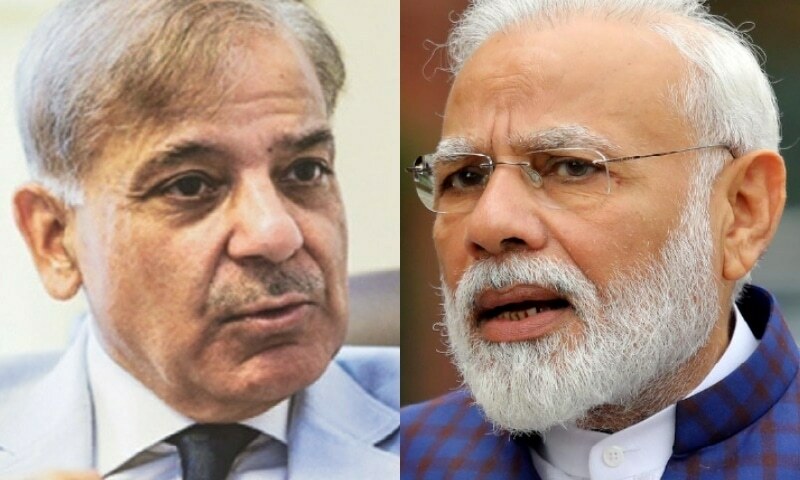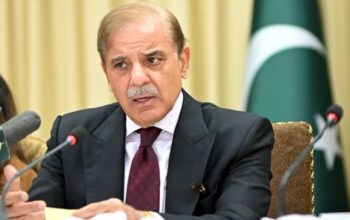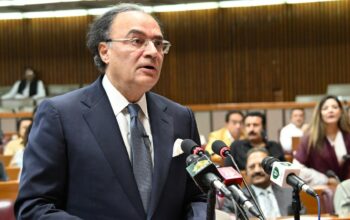By Staff Reporter
ISLAMABAD: The United States on Saturday brokered ‘a full and immediate’ ceasefire between India and Pakistan, pausing a rapid military escalation that saw the nuclear-armed rivals exchange missile strikes, drones attacks and deadly cross-border aggression in their most serious confrontation in decades.
US President Donald Trump announced the breakthrough on his Truth Social platform, declaring both nations had agreed to a “full and immediate ceasefire” following intensive negotiations mediated by his senior administration officials.
“After a long night of talks mediated by the United States, I am pleased to announce that India and Pakistan have agreed to a FULL AND IMMEDIATE CEASEFIRE,” Trump, who has repeatedly touted his role in global conflict resolution since resuming the office for second term, said. “Congratulations to both Countries on using Common Sense and Great Intelligence.”
Deputy Prime Minister Ishaq Dar swiftly confirmed the agreement on X, formerly Twitter. “Pakistan has always strived for peace and security in the region, without compromising on its sovereignty and territorial integrity.”
Dar said both countries had agreed to a ceasefire “with immediate effect” and India’s foreign ministry said it would start at 5 p.m. Indian time.
The ceasefire caps a whirlwind 48-hour diplomatic push led by US Secretary of State Marco Rubio and Vice President Vance, who engaged directly with Indian Prime Minister Narendra Modi, Pakistani Prime Minister Shehbaz Sharif, and senior security officials from both nations.
“I am pleased to announce the Governments of India and Pakistan have agreed to an immediate ceasefire and to start talks on a broad set of issues at a neutral site,” Rubio said in a statement on X. “We commend Prime Ministers Modi and Sharif on their wisdom, prudence, and statesmanship in choosing the path of peace.”
Officials from both sides also showed a willingness to take a step back following the day’s exchanges, as the combined civilian death toll on the two sides rose to 66.
The deal came hours after Pakistan launched “Operation Bunyan-un-Marsoos” (Firm Foundation), its largest retaliatory strike since hostilities began Wednesday.
Pakistan hit India’s high-value defence installations, energy infrastructure, and a Russian-made air-defence system in what officials described as a “befitting response” to New Delhi’s missile strikes that targeted three the country’s airbases in the wee hours on Saturday.
The dramatic escalation between the nuclear-armed rivals has drawn urgent international calls for de-escalation, with global powers pushing “constructive talks to avoid future conflicts”. Beijing, a key ally to Islamabad, also pressed both nations to “return to the track of political settlement through peaceful means.”
State media reported that a cyber attack disabled 70% of India’s power grid, causing widespread blackouts. The operation also involved missile strikes on strategic Indian military targets, including the S-400 air defense system in Adampur, a military intelligence training center in Rajouri, Indian-administered Kashmir, and various brigade headquarters and supply depots. Pakistani forces further struck several Indian airfields and an aviation base to impair India’s air operations.
Among the key targets destroyed were a storage site for Brahmos missiles in India’s Beas region, an airbase in Udhampur, and an airfield in Pathankot, according to state media outlets PTV News and Radio Pakistan.
The military also reported destroying Brigade Headquarters, a site known as “K G Top,” and a supply depot in Uri.
Stata media reported that the country has conducted what it called a “precision-targeted military operation” against Indian defense installations, striking high-profile sites including a $1.2 billion Russian-made S-400 air-defense system and critical energy infrastructure.
The operation purportedly struck the Indian Air Force’s Udhampur airbase in Jammu and Kashmir, the Pathankot airfield in Punjab, and a BrahMos missile storage facility in Nagrota. An artillery position in Dehrangyari was also reportedly destroyed, with state media saying “heavy enemy casualties.”
Alongside military operations, Pakistan also launched a sweeping cyber offensive, crippling several Indian government and military websites, PTV News news reported. The hacks targeted prominent sites, including those of the Bharatiya Janata Party (BJP), the Border Security Forces (BSF), the Indian Air Force, and the Maharashtra Election Commission.
Latest tensions between Pakistan and India were triggered by a militant attack in Indian-administered Kashmir’s Pahalgam resort town that killed 26 people on April 22. New Delhi has said Islamabad was involved, which denies the allegation and said it is willing to participate in a transparent and credible inquiry.
The counter-attack came hours after India targeted three Pakistani airbases: Nur Khan in Rawalpindi, Murid in Chakwal, and one in Shorkot.
The conflict, which began on Wednesday, has rapidly intensified. India claims it struck nine “terrorist infrastructure” sites in Pakistan in retaliation for an April 22 attack in occupied Kashmir, which it blames on Islamabad. Pakistan denies involvement and insists the sites hit were not militant bases. On the same day, Pakistan said it shot down five Indian aircraft.
Tensions spiked further on Friday when Pakistan’s military reported shooting down 77 Indian drones over multiple locations, including Karachi, Lahore, and Rawalpindi. Early Saturday, reports emerged of an Indian missile strike on the Nur Khan airbase in Rawalpindi, located near the Pakistani military’s headquarters and just 10 kilometers from Islamabad.
Deputy PM Dar, soon after the strike, called the response “proportionate” and vowed to block India’s bid for regional dominance.
“The tamasha [circus] that India has done in the past three days, we will not let India claim hegemony. The Pakistan Armed Forces and government are determined that this will not happen,” Dar told a local television channel. “This operation that we started today will all end in some way. It all depends on what India wants.”
“Pakistan had no choice, so our civil-military leadership made the decision following the attack on Nur Khan Air Base. No more patience,” Dar said. “We’ve exhibited a lot of patience so far. There is a threshold which we cannot go beyond, especially when it comes to hypocrisy and double standards.”
The deputy PM said Pakistan’s initial response was restrained, targeting only Indian jets that entered its airspace. “Even on the first day, we stayed in our space and attacked those jets that entered Pakistan, five of which we shot down,” he said. “There were clear instructions not to be on the offensive. Our patience has been tested and has run out, and the actions that have been taken are retaliatory and defensive, the world can see that.”
The latest hostility between arch-rivals stems from the decades-old Kashmir dispute, a territorial conflict that has fueled tensions since the partition of British India in 1947. The heavily militarised territory, claimed in full by both India and Pakistan but controlled in parts, has witnessed multiple conflicts. The countries have gone to war three times, including twice over Kashmir, and clashed several times.
Copyright © 2021 Independent Pakistan | All rights reserved




